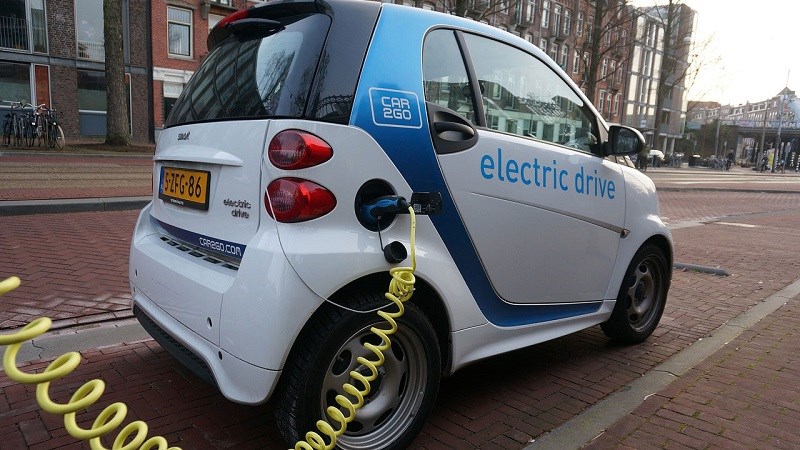
The biotech industry has had a great run this year. From new drugs for critical illnesses to innovative treatments and a wave of strategic acquisitions, there is plenty happening in the lab space.
The S&P Biotechnology Select Industry Index has amassed more than 31% gains for the year to date, nearly double the 17% returns for the broader S&P 500 Health Care, and handily topping the 27% rise in the S&P 500. The Nasdaq Biotechnology index has also climbed about 29%, for the same period, as of Dec 12, 2019.
Despite the sector’s strong performance, there are still attractive biotech investment opportunities for long-term investors. Leading healthcare companies are well-positioned to continue to grow through economic swings and competitive pressures. Not only do they boast innovative treatments, attractive R&D pipelines and favourable demographic trends, but their stocks’ sizeable fair value discounts also offer some margin of safety and hold the promise of ample upside.
|
Gilead Sciences Inc |
||
|
Ticker: |
GILD |
|
|
Current yield: |
3.73% |
|
|
Forward P/E: |
9.55 |
|
|
Price: |
US$65.79 |
|
|
Fair value: |
US$84 |
|
|
Value: |
22% discount |
|
|
Moat: |
Wide |
|
|
Moat trend: |
Stable |
|
|
Star rating: |
**** |
|
|
Data as of Dec 13, 2019 |
||
Biotech behemoth Gilead Sciences (GILD) develops and markets therapies to treat life-threatening infectious diseases, particularly HIV and hepatitis B and C. Recent acquisitions have broadened its spectrum to include pulmonary and cardiovascular diseases and cancer.
Gilead enjoys a leadership position in the treatment of HIV, with patented products that underpin current treatment regimens. “Despite numerous competitors, the company has established leading market share and spectacular profitability with its convenient, effective, and safe treatments,” says a Morningstar equity report, noting that the company serves 80% of treated HIV patients in the U.S.
The US$11 billion Pharmasset acquisition gave Gilead the most valuable hepatitis C drug in the industry, Sovaldi, and cemented the latter’s position as a powerhouse in the broader infectious disease market. “Gilead is leading the way for all-oral treatments in the hepatitis C market, and it has a multi-billion-dollar product,” says Morningstar sector strategist Karen Andersen, adding the firm is building a pipeline outside of HIV and HCV but will need more acquisitions to see strong growth.
Gilead’s wide economic moat stems from patent protection on newer HIV regimens and its continued dominance in the hepatitis C market, which “will be enough to ensure strong returns for the next couple of decades,” says Andersen, who puts the stock’s fair value at US$84, and forecasts 1% sales growth and 4% non-GAAP earnings growth through 2023.
|
Merck & Co Inc |
||
|
Ticker: |
MRK |
|
|
Current yield: |
2.72% |
|
|
Forward P/E: |
15.77 |
|
|
Price: |
US$88.54 |
|
|
Fair value: |
US$103 |
|
|
Value: |
13% discount |
|
|
Moat: |
Wide |
|
|
Moat trend: |
Stable |
|
|
Star rating: |
**** |
|
|
Data as of Dec 13, 2019 |
||
Healthcare giant Merck (MRK) makes drugs to treat several conditions including cardiovascular disease, asthma, cancer, and infections. The firm’s cancer treatment is a major contributor to overall sales. The company also has a substantial vaccine business, with treatments to prevent hepatitis B and pediatric diseases.
Merck's portfolio of high-margin drugs and a pipeline of new drugs should ensure strong returns on invested capital over the long term, says a Morningstar equity report. Given the firm is through the worst of its patent cliff, it should face lower generic competition than it has experienced over the past years, the report adds.
After several years of lean R&D productivity, Merck's drug development strategy is now yielding important new drugs. “In particular, Keytruda for cancer represents a key blockbuster with multi-billion-dollar potential,” says Morningstar sector director, Damien Conover, noting the firm holds a first-mover advantage in one of the largest cancer indications of non-small cell lung cancer.
Keytruda, which exceeded US$3 billion in sales in the latest quarter, “will be a key driver of growth for the company over the next several years,” says Conover, who recently lowered the stock’s fair value from US$104 to US$103, incorporating higher long-term legal costs in defending its product portfolio.
Merck recently reinforced its oncology franchise by scooping up cancer drug developer ArQule whose lead drug is being tested for blood cancer treatment.
|
Biogen Inc |
||
|
Ticker: |
BIIB |
|
|
Current yield: |
- |
|
|
Forward P/E: |
9.35 |
|
|
Price: |
US$298.04 |
|
|
Fair value: |
US$390 |
|
|
Value: |
25% discount |
|
|
Moat: |
Wide |
|
|
Moat trend: |
Stable |
|
|
Star rating: |
**** |
|
|
Data as of Dec 13, 2019 |
||
Biotech heavyweight Biogen (BIIB) makes and sells multiple sclerosis (MS) and cancer therapies. The company also has several drugs in phase 3 trials in neurology and neurodegenerative diseases.
Biogen's specialty-market-focused drug portfolio and novel, neurology-focused pipeline create sustainable competitive advantage. The company’s wide moat is built on “the stability of its multiple sclerosis franchise, diversification in neurology with Spinraza, and a solid neurology pipeline,” says a Morningstar equity report, but adds a cautionary note about “the high uncertainty that comes from having an innovative, high-risk pipeline.”
The biotech major’s strong profitability can be attributed to the success of three marketed products in the fields of oncology and neuroimmunology, and the introduction of Tecfidera which helped secure a dominant share of the MS market.
“Biogen has a strong R&D strategy for maintaining its leadership in MS, where pricing power is strong, patient need for novel therapies is high, and the pipeline has been particularly productive,” says Anderson, who recently raised the stock’s fair value from US$383 to US$390, prompted by improved probability of approval for the company’s Alzheimer's drug candidate aducanumab.
Anderson forecasts returns on invested capital to remain in the mid-teens during the next 10 years, starting in 2018, exceeding 7.2% cost of capital.
While not immune from the threat of biosimilars, Biogen’s products are relatively protected by the significant cost barriers to manufacturing and development of biosimilar, she adds.
|
Roche Holding AG ADR |
||
|
Ticker: |
RHHBY |
|
|
Current yield: |
2.80% |
|
|
Forward P/E: |
14.95 |
|
|
Price: |
US$38.30 |
|
|
Fair value: |
US$45 |
|
|
Value: |
15% discount |
|
|
Moat: |
Wide |
|
|
Moat trend: |
Stable |
|
|
Star rating: |
**** |
|
|
Data as of Dec 13, 2019 |
||
Swiss healthcare giant Roche (RHHBY) sells a variety of oncology therapies under its pharmaceuticals segment. Oncology products account for 60% of pharmaceutical sales. The firm also has a strong diagnostics business.
Roche's drug portfolio and industry-leading diagnostics conspire to create sustainable competitive advantages. The company holds a 30% market share in oncology therapeutics and a 20% share of global in-vitro diagnostics. “As the market leader in both biotech and diagnostics, this Swiss healthcare giant is in a unique position to guide global health care into a safer, more personalized, and more cost-effective endeavour,” says a Morningstar equity report.
Roche's biologics focus and innovative pipeline help maintain its wide moat and continue to drive growth as current blockbusters mature, notes Anderson. More than 80% of Roche's top pharmaceutical sales are from biologics, which provides a buffer against traditional generic competition, she adds.
Roche's pharmaceutical division, key cancer biologics Avastin, Rituxan, and Herceptin raked in 36% of 2018 revenue. Although all three are facing threat from biosimilars in the U.S. and Europe, “Roche is also expanding outside of oncology with MS drug Ocrevus (US$7 billion peak sales) and hemophilia drug Hemlibra (US$6 billion peak sales) launching strongly,” adds Anderson who pegs the stock’s fair value at US$45 per ADR.























